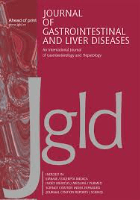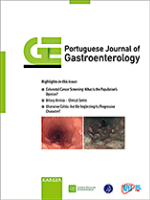
Clinical and Experimental Gastroenterology
Scope & Guideline
Exploring the frontiers of gastroenterology for better patient outcomes.
Introduction
Aims and Scopes
- Clinical Management of Gastrointestinal Disorders:
The journal emphasizes research that enhances the understanding of clinical practices and management strategies for various gastrointestinal conditions, including inflammatory bowel disease, pancreatitis, and gastrointestinal cancers. - Innovative Diagnostic Techniques:
There is a consistent focus on developing and validating new diagnostic methods, such as imaging techniques and biomarkers, which aid in the early detection and accurate diagnosis of gastrointestinal diseases. - Therapeutic Advances:
The journal highlights novel therapeutic approaches, including pharmacological treatments, surgical interventions, and endoscopic techniques, aimed at improving patient outcomes in gastrointestinal health. - Patient-Centered Research:
Research that addresses patient experiences, quality of life, and treatment adherence is a core theme, reflecting the journal's commitment to understanding the patient perspective in gastrointestinal care. - Epidemiological Studies:
The journal includes studies that examine the epidemiology and risk factors associated with gastrointestinal diseases, contributing to a better understanding of disease prevalence and management strategies.
Trending and Emerging
- Personalized Medicine in Gastroenterology:
There is a growing emphasis on personalized treatment strategies, particularly in managing inflammatory bowel disease and gastrointestinal cancers, which tailors therapy based on individual patient characteristics and genetic profiles. - Microbiome Research:
Research focusing on the gut microbiome and its implications for gastrointestinal health is on the rise, reflecting increasing recognition of its role in disease pathogenesis and treatment responses. - Telemedicine and Digital Health Solutions:
The COVID-19 pandemic has accelerated interest in telemedicine and digital health applications for managing gastrointestinal disorders, highlighting the need for innovative approaches to patient care. - Nutritional Interventions and Dietary Management:
An emerging trend involves exploring the impact of diet and nutrition on gastrointestinal health, including the role of specific diets in managing conditions like irritable bowel syndrome and inflammatory bowel disease. - Novel Biomarkers for Disease Prediction and Management:
Research into new biomarkers for the early detection and monitoring of gastrointestinal disorders is trending, supporting more precise and effective management strategies.
Declining or Waning
- Traditional Surgical Techniques:
Research focusing on conventional surgical methods has decreased as interest shifts towards minimally invasive techniques and innovative endoscopic procedures, which are perceived to offer better outcomes and reduced recovery times. - Basic Science Research:
There has been a noticeable reduction in studies solely focused on basic science aspects of gastroenterology, as the journal increasingly prioritizes translational research that connects laboratory findings to clinical applications. - Hepatic Disorders:
The frequency of publications specifically addressing hepatic disorders, such as hepatitis and cirrhosis, appears to be declining, possibly due to a broader focus on gastrointestinal diseases as a whole rather than liver-specific issues. - Conventional Imaging Techniques:
Interest in traditional imaging modalities, such as X-rays and standard ultrasound, has waned in favor of advanced imaging technologies, like MRI and CT scans, which provide more detailed insights into gastrointestinal conditions.
Similar Journals

Journal of Gastrointestinal and Liver Diseases
Pioneering Insights for a Healthier Digestive SystemThe Journal of Gastrointestinal and Liver Diseases, published by MEDICAL UNIV PRESS in Romania, serves as a pivotal platform for the dissemination of significant research in the fields of gastroenterology and hepatology. Established in 2006, this journal has evolved over the years, currently holding a Q3 rank in Gastroenterology and a Q2 rank in Medicine (miscellaneous), reflecting its commitment to high-quality scholarship and impactful contributions to medical science.
With an ISSN of 1841-8724 and an E-ISSN of 1842-1121, the journal engages a diverse readership of researchers, clinicians, and students passionate about advancing knowledge in gastrointestinal and liver health. While it currently does not operate under an open access model, the journal remains a vital resource for those seeking to stay updated on the latest developments and emerging trends in the field. As it converges towards a broader impact, projected through its coverage until 2024, the Journal of Gastrointestinal and Liver Diseases continues to contribute to the academic landscape, encouraging innovation and comprehensive understanding in digestive health.

Visceral Medicine
Advancing the Frontiers of Gastroenterology and SurgeryVisceral Medicine is a distinguished journal published by KARGER, specializing in the fields of gastroenterology and surgery. With an ISSN of 2297-4725 and an E-ISSN of 2297-475X, this journal has secured its place in the academic landscape since its inception in 2016, maintaining a consistent quality of research and fostering advancements in visceral health through the year 2024. With notable rankings within the 2nd quartile (Q2) for both gastroenterology and surgery categories, Visceral Medicine ranks #101 out of 551 in the Medicine & Surgery category and #67 out of 167 in Gastroenterology according to Scopus, reflecting its significant impact and relevance in the pursuit of scientific knowledge. Despite not being an open access journal, it provides valuable insights and original research aimed at professionals, researchers, and students keen on expanding their understanding of visceral diseases and innovative surgical techniques. The journal is headquartered in Basel, Switzerland, contributing to its reputation as a hub for high-quality scholarly communication within the medical community.

WORLD JOURNAL OF GASTROENTEROLOGY
Empowering the global gastroenterology community.WORLD JOURNAL OF GASTROENTEROLOGY, published by BAISHIDENG PUBLISHING GROUP INC, stands at the forefront of gastrointestinal research, providing a critical platform for the dissemination of high-quality studies in the field. With an impressive impact factor reflected in its Q1 rankings in both Gastroenterology and Miscellaneous Medicine, this journal is recognized for its rigorous peer-review process and commitment to advancing knowledge and practices related to digestive health. Covering comprehensive scopes from clinical advancements to innovative therapies, the journal serves an essential role for researchers, clinicians, and students, enabling them to stay updated on the latest developments and findings from 1998 through 2024. The open access model facilitates broader accessibility, ensuring that groundbreaking research reaches a global audience. The journal's ranking within the top 15% of Scopus demonstrates its significant contribution to the academic community, making it a valuable resource for advancing the science of gastroenterology.

Gastrointestinal Disorders
Empowering Professionals with Cutting-Edge GI ResearchGastrointestinal Disorders is a prominent open-access journal published by MDPI, based in Switzerland, that focuses on the latest research and innovations in the fields of gastroenterology, hepatology, and immunology. Since its inception in 2019, the journal has provided a vital platform for researchers and professionals to disseminate their findings, engaging with a global audience keen on advancing knowledge in gastrointestinal health. With a dedicated commitment to high-quality, peer-reviewed articles, Gastrointestinal Disorders has gained recognition in 2023, achieving Q3 status in gastroenterology and notable rankings in several other categories, including a respectable position in the quartiles for hepatology, immunology, and oncology. Despite its recent establishment, the journal has quickly become a valuable resource, facilitating open access to critical insights in the study of gastrointestinal diseases and their management, ensuring that emerging research is readily available to inform clinical practice and educate future professionals.

GE Portuguese Journal of Gastroenterology
Advancing Gastrointestinal Knowledge for a Healthier TomorrowThe GE Portuguese Journal of Gastroenterology, published by KARGER, is a prominent platform in the field of gastroenterology, providing a vital forum for the dissemination of high-quality research since its establishment. With an open access model implemented in 2012, the journal ensures that emerging findings in gastrointestinal health are readily accessible to a global audience, facilitating the exchange of critical knowledge among researchers, practitioners, and students alike. Based in Switzerland, this journal has earned a respected position within the academic community, currently holding a Q3 ranking in the gastroenterology category for 2023, alongside a Scopus rank of #113 out of 167 in its field. Spanning converged years from 2014 to 2024, the GE Portuguese Journal of Gastroenterology aims to bridge gaps in research and practice, fostering collaboration and innovation across diverse areas within the discipline. Authors and readers alike benefit from the journal's commitment to advancing knowledge and practice in gastroenterology.

BMC GASTROENTEROLOGY
Uniting Knowledge and Innovation in GastroenterologyBMC Gastroenterology is a premier open-access journal published by BMC, dedicated to disseminating high-quality research in the field of gastroenterology. Established in 2001 and headquartered in the United Kingdom, this journal aims to enhance the understanding of gastrointestinal disorders through innovative research, reviews, and clinical studies. With an impressive impact factor and ranking within the Q2 category in gastroenterology and miscellaneous medicine for 2023, BMC Gastroenterology plays a critical role in advancing knowledge and practices in the field. The journal's commitment to open access ensures that researchers, professionals, and students worldwide can freely access and share vital findings and insights. Encouraging collaboration and knowledge transfer, BMC Gastroenterology is an essential resource for those dedicated to improving gastrointestinal health and outcomes.

Translational Gastroenterology and Hepatology
Fostering Global Collaboration in Gastrointestinal Science.Translational Gastroenterology and Hepatology, published by AME Publishing Company, stands as a pivotal platform for advancing the understanding and treatment of gastrointestinal and liver diseases. With its focus on translational research, this journal aims to bridge the gap between laboratory discoveries and clinical applications, thus fostering improvements in patient care. Although specific metrics like H-Index and Scopus ranks are currently unavailable, the journal is committed to maintaining high standards of scholarly communication and excellence. As an open-access publication, it ensures that valuable findings are readily accessible to a global audience, promoting collaboration and innovation among researchers, clinicians, and healthcare professionals invested in gastroenterology and hepatology. The journal's dedication to disseminating groundbreaking research makes it an essential resource for those seeking to stay at the forefront of these ever-evolving fields.

PRACTICAL GASTROENTEROLOGY
Exploring Innovations in Gastrointestinal HealthPRACTICAL GASTROENTEROLOGY is a distinguished journal dedicated to the field of gastroenterology, published by Shugar Publishing Inc in the United States. With an ISSN of 0277-4208, the journal serves as a pivotal resource for medical professionals, researchers, and students keen on staying abreast of the latest advancements and practical applications in gastrointestinal health. Although it does not currently operate under an Open Access model, it has been a respected publication since its inception, spanning significant years of research from 1989 to 2013 and resuming again from 2016 to 2023. Despite holding a current Q4 ranking in Gastroenterology with Scopus, its commitment to quality insights provides a platform for critical information dissemination, making it an essential read for those engaged in clinical practice and academic research. The journal’s objectives include addressing practical challenges in gastroenterology, bridging the gap between research and clinical implementation, and fostering ongoing education among practitioners in this dynamic field.

Therapeutic Advances in Gastroenterology
Advancing knowledge for better digestive health.Therapeutic Advances in Gastroenterology, published by SAGE Publications Ltd, is a premier open access journal dedicated to the advancement of knowledge in the field of gastroenterology. Since its inception in 2008 and its transition to open access in 2018, the journal has consistently provided high-quality peer-reviewed research articles, review papers, and clinical studies that address the latest therapeutic advancements and challenges in gastrointestinal medicine. With an impressive impact factor and a 2023 Scopus ranking placing it in the Q1 quartile of gastroenterology journals, it stands as a leading platform for researchers, clinicians, and healthcare professionals. The journal’s commitment to disseminating impactful research has positioned it at the forefront of academic discourse, offering a vital resource for those devoted to improving patient outcomes in digestive health. The United Kingdom-based journal invites submissions that contribute to the understanding and treatment of gastrointestinal disorders, ensuring that cutting-edge findings reach a global audience.

Minerva Gastroenterology
Advancing Gastroenterology Through Innovative ResearchMinerva Gastroenterology, published by EDIZIONI MINERVA MEDICA, is a notable academic journal dedicated to advancing the field of gastroenterology and related disciplines. With an ISSN of 2724-5985 and an E-ISSN of 2724-5365, this journal gathers innovative research from diverse areas including internal medicine, endocrinology, and metabolism. Though characterized by its open-access policies, Minerva Gastroenterology aims to provide a platform for high-quality scholarly articles with an emphasis on critical reviews, clinical studies, and translational research. Since its inception in 2021, the journal has managed to secure a reputation reflected in its Q3 rank across multiple categories in 2023, as well as its standing in Scopus rankings, positioning it in the 45th to 47th percentile among renowned medical journals. Situated in Turin, Italy, it fosters collaboration and knowledge-sharing among researchers and practitioners, making it an essential resource for those seeking to deepen their understanding of gastroenterological conditions and enhance clinical practices.